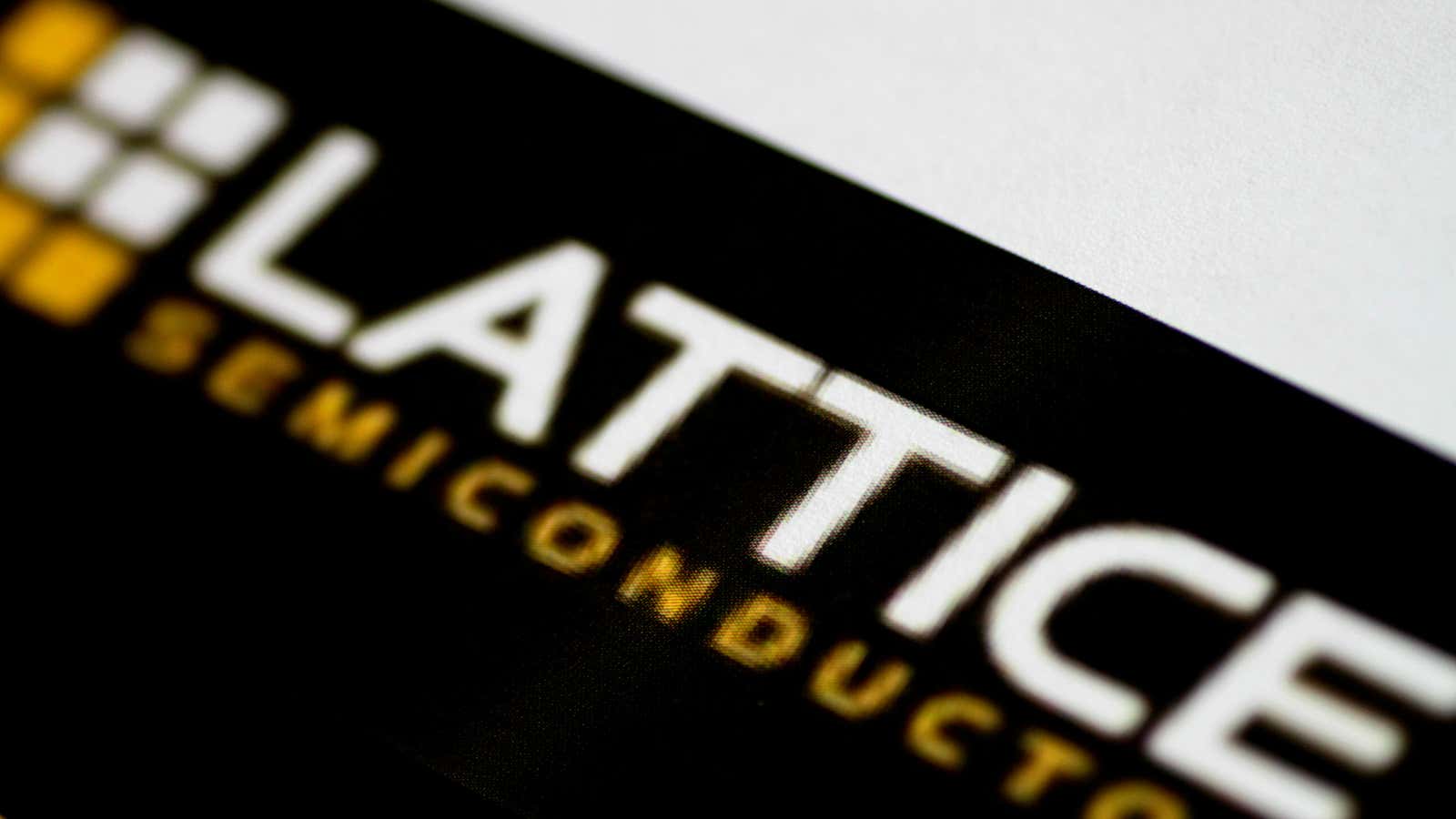It may not have been a surprise, but president Donald Trump’s veto of a US semiconductor firm’s sale of itself to a China-funded private-equity firm is nevertheless a shock to China’s tech ambitions.
On Sept. 13, the White House announced that the president was rejecting Canyon Bridge Capital Partners’ $1.3 billion acquisition plan of Oregon-based Lattice Semiconductor maker on the grounds that it might “impair the national security of the United States.” The decision came after the Treasury department’s Committee on Foreign Investment in the United States (CFIUS) signaled that it was recommending against (paywall) the acquisition, which was first announced last November (pdf), and later agreed to by Lattice’s shareholders.
At the point that the committee sends such a signal, it usually provides the parties a chance to walk away, “and control the public message,” wrote Lawrence Ward, a partner at the law firm Dorsey & Whitney who specializes in international business and US national security law, in an email. “It is rather unusual for companies to allow the President to make a determination.”
Earlier in the year, an internal Pentagon report (paywall) raised concerns that China was acquiring technology that could have military applications. Lattice makes programmable chips that can withstand high temperatures and have been tested to military specifications, according to an FBI statement on 2012 charges against Chinese nationals who allegedly attempted to improperly acquire and export Lattice chips.
In a statement on the White House announcement, Canyon said, “We are obviously disappointed in today’s decision by the President of the United States to forgo what we believe to be an excellent deal for Lattice’s shareholders and its employees by expanding opportunities to keep jobs in America.”
California-based Canyon was set up last year with initial funding of $1.5 billion. Canyon Bridge said in the November statement announcing the planned Lattice acquisition that it gets its capital from limited partners in China. That includes a firm called Yitai Capital, a Hong Kong company whose parent is China Venture Capital Fund, according to the White House order.
China Venture Capital Fund is in turn backed in large part by the China Reform Holdings Corporation (link in Chinese), according to an SEC filing by another tech firm in a separate matter. Canyon Bridge’s founder and managing partner Benjamin Chow was previously a managing director with China Reform Fund Management, according to his bio on the Canyon website. That firm was founded in 2014 and is controlled by China Reform Holdings, according to its website.
On its website, China Reform Fund Management describes its parent as a state-owned asset management firm under direct supervision from the government whose aims include pushing forward the restructuring of state-run firms and making “strategic investments in new emerging industries as well as other sectors related to national security and economic lifelines.”
Lattice said in its statement on the Trump decision that it had made comprehensive efforts to address national security concerns in the course of seeking approval for the purchase.
“Our CFIUS mitigation proposal was the single most comprehensive mitigation proposal ever proposed for a foreign transaction in the semiconductor industry and would have maximized United States national security protection while still enabling Lattice to accept Canyon Bridge’s investment and double American jobs,” said CEO Darin G. Billerbeck in a statement.
The Treasury department said in a statement after Trump’s decision that it felt mitigation wasn’t possible given the risks of a potential technology transfer, and the need to protect the US government’s semiconductor supply chain. “The devil is in the combination of the details of the ownership of the foreign entity and the underlying technology and its uses,” noted Ward. “There are a host of factors that CFIUS considers, including whether a foreign government is involved. A Chinese company without any significant amount of government ownership/control might have success in acquiring a US semiconductor company.”
Lattice’s Billerbeck earlier told the Wall Street Journal (paywall) that its proposals to address US concerns included giving the government control over its intellectual property, an unusual level of interference for a private firm. That proposal wouldn’t be attractive “for a host of reasons, not the least of which is the ongoing monitoring that would be necessary,” Ward noted.
What’s more, the very fact that the company made such a far-reaching proposal might suggest to some there were indeed serious concerns to address.
